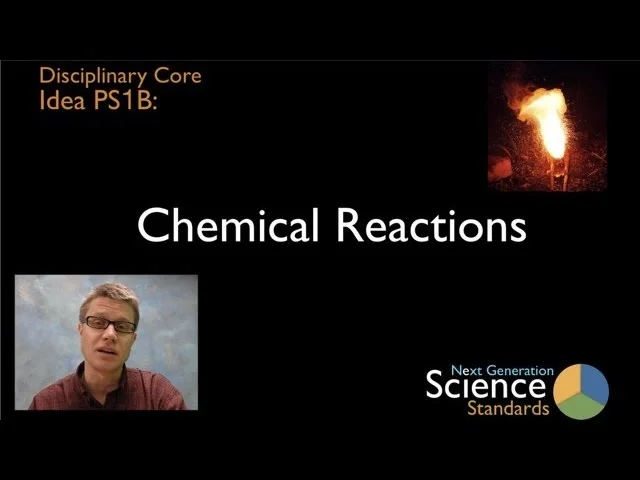PS1.C: Nuclear Processes
Paul Andersen explains three major nuclear processes; fusion, fission, and decay. He begins with a brief discussion of the four fundamental forces in nature. He the explains how nuclei can be combined in fusion, divided through fission, and changed through radioactive decay. A discussion of the teaching progression K-12 is also included.
PS1.B: Chemical Reactions
In this video Paul Andersen explains how chemical reactions progress as bonds are broken and reformed reformed. He explains the difference between changes in state and changes in molecules. He discussed collision theory and explains why increases in temperature and concentration can increase reaction rates. He also discusses the conservation of matter in chemical reactions. The video also contains a teaching progression for chemical reactions from grades K-12.
CCC5: Matter and Energy
In this video Paul Andersen explains how matter and energy flow and cycle through systems. He starts by explaining how energy and matter input and output will always be conserved. He addresses the many misconceptions surround energy and matter including the belief that food contains energy. He explains how nuclear reactions conserve both batter and energy. The video ends with a teaching progression for grades K-12.
SEP2: Developing and Using Models
Paul Andersen explains the importance of modeling in science and engineering. Models are used by scientists to explain phenomenon. Unlike mental models, conceptual models can be shared by all scientists to improve our understanding of the Universe. Engineers use models study systems and test designs.




